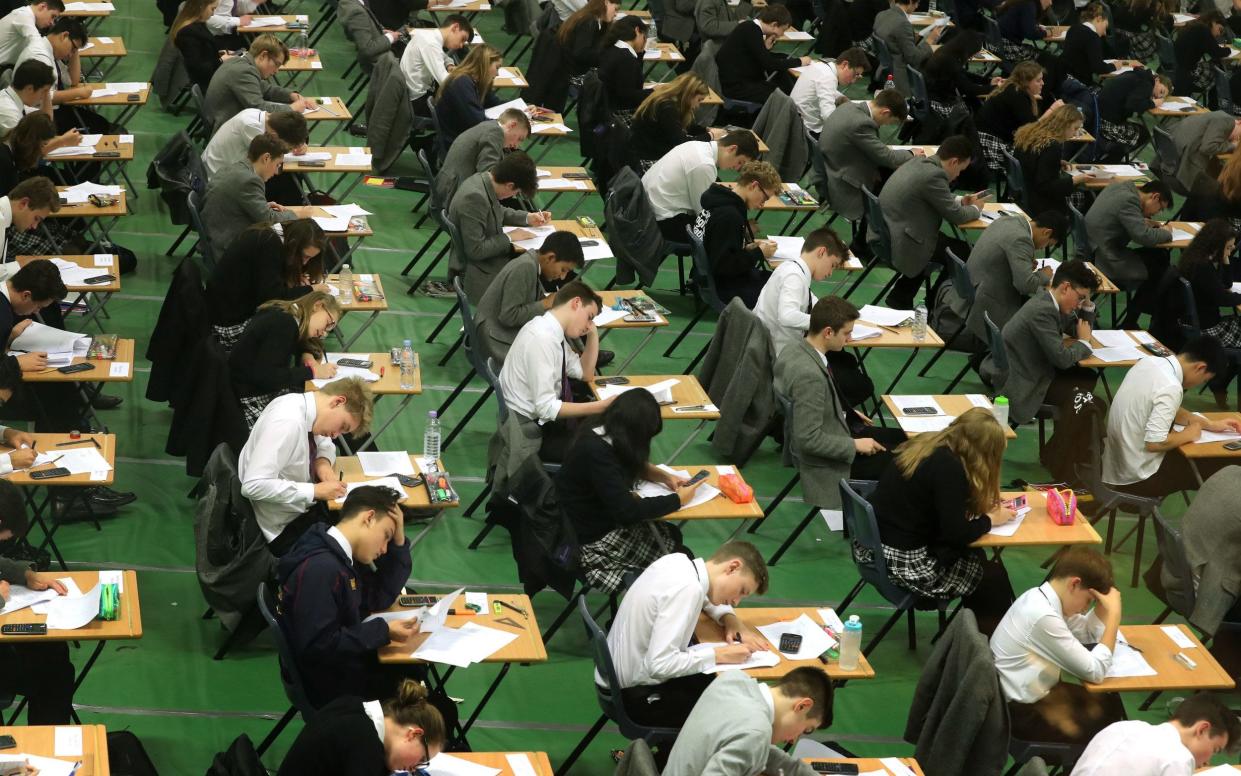Parents called in to supervise exams as Covid fears spark invigilator shortage

Parents have been called in to watch over GCSE and A-level exams as invigilators are staying away from schools in case they catch Covid.
As the first in-person exams since the start of the pandemic began on Monday, headteachers raised concerns about a lack of invigilators for pupils sitting their assessments.
Some parents have been asked to help remedy the situation, according to school staff, amid a “perfect storm” of more pupils needing separate rooms due to testing anxiety and the current staff shortage hitting schools.
Geoff Barton, the general secretary of the Association of School and College Leaders, said that a recent survey showed that a third of schools had not been able to recruit enough invigilators for the summer.
“That is a very significant number and this will cause a lot of logistical problems in the schools and colleges affected,” he said.
No free Covid tests for exam students
Many invigilators are retired teachers, he explained, and concerns over Covid means they may not be “keen on the idea of being in an exam hall with a large number of students, particularly as the Government has withdrawn free Covid testing”.
“We have repeatedly called upon the Government to make free Covid tests available to students sitting exams which may have helped to allay these concerns, but the Government has refused to do so. We do not think this is consistent with its rhetoric about the importance of exams,” he added.
Mr Barton said that schools which were unable to recruit enough invigilators would need to use their existing staff, including teaching assistants, teachers or members of the leadership team, which would mean “redeploying those staff from other duties which is likely to have an impact on provision”.
“This is a very frustrating situation for the schools and colleges concerned,” he said.
Kendrick School in Reading has had to recruit and train some parents and two part-time librarians to help invigilate exams this year.
Katherine McDiarmid, an exams officer at the school, told the BBC she had to put “constant adverts out” for invigilators amid the shortage.
She said: “The Covid situation has meant that a lot of [invigilators] have decided they don’t want to work. They don’t want to put themselves at risk.
“People who were your really experienced key room leads - that could do the job standing on their heads - have left.”
Normally, one invigilator must be present in written assessments for every 30 students, but the Department for Education (DfE) has relaxed this requirement to one for 40 because of the shortages.
Teachers invigilating exams in their own subjects
Additionally, teachers are being allowed to invigilate exams in their own subjects provided they are not the sole or lead invigilator, which is not normally permitted.
Schools have also been advised that they can split students into groups, start exams later or change the venue at shorter notice than usual if they cannot find enough invigilators.
Jugjit Chima, the chief executive of the National Association of Exams Officers, said they have “almost had a perfect storm this year,” with the situation made worse because many members had never experienced an exam season before.
Additionally, some schools were late to recruit invigilators because they were concerned that exams would not go ahead following two years of cancellations.
A DfE spokesperson said: “We do not anticipate general disruption as a result of a lack of invigilators. Schools and exam centres are well prepared to handle any challenges, having been asked to have robust contingency plans in place.
“We know some schools and colleges have had difficulties recruiting invigilators this year, which is why we have been working closely with exam boards and with the Exams Office, who developed a Vacancy Map that collates centre invigilator vacancies in one place, and which we have shared widely in the run-up to exams. Exam boards have also introduced additional flexibilities to the rules surrounding invigilation – should they be needed.”

 Yahoo News
Yahoo News 
